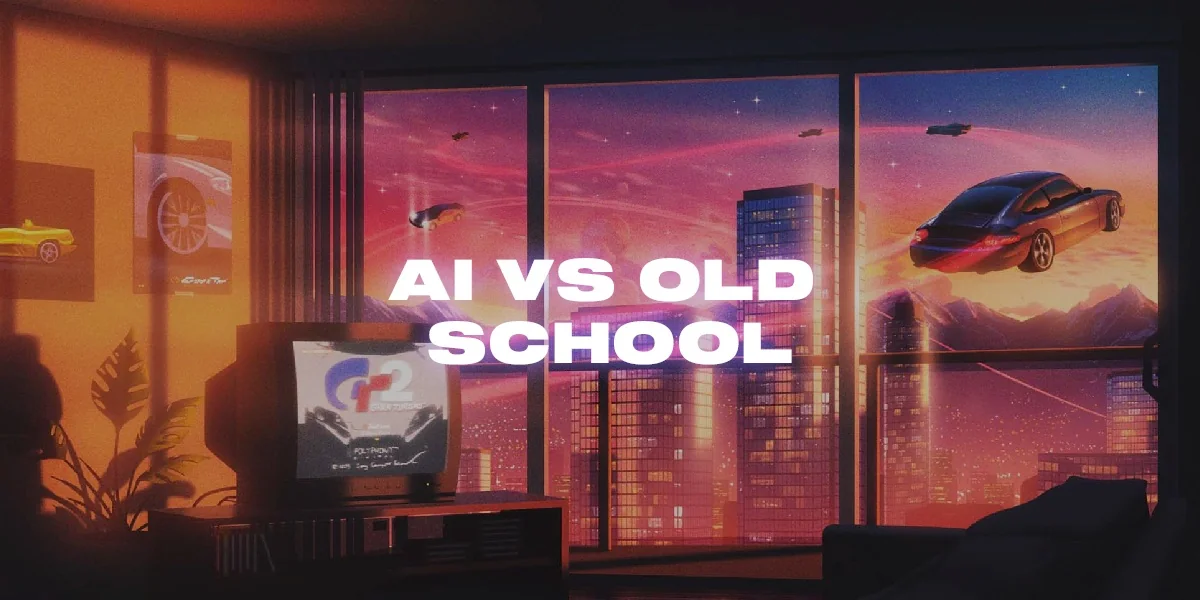"Get a degree. Memorize the facts. Follow the rules. You'll succeed."
That formula worked once - but now? It's dangerously outdated.
We're living in an AI-powered world, yet our education system is still stuck in an era of textbooks and standardized tests. In this post, we'll unravel why conventional education no longer aligns with reality - and what truly creates value today.
By the end of this read, you'll understand:
- Why AI is rewriting the rules of learning and work
- The underestimated power of "wrappers"
- Why originality is overrated - and utility wins
Let's break it down.
🤖 AI Disruption vs. Educational Tradition
Here's the uncomfortable truth:
Traditional education was designed for an era before AI - when memorizing facts, writing code, and following procedures gave you an edge.
AI now does all that - faster and better.
AI isn't just changing how we work. It's changing what is worth learning.
Most schools still reward rote memorization and rigid thinking. Meanwhile, AI systems are automating exactly those tasks. So the question becomes:
If AI can do what you're trained to do, what's your edge?
☕ Meet the "Coffee Stack": A Value Lesson in Your Daily Latte
Let's talk about coffee. Yes, coffee.
When you buy a Starbucks coffee, you're not just buying beans. You're tapping into a stack of hidden services:
- Suppliers who source the beans
- Trucks that deliver the milk
- Factories that make the cups
- Apps that process your order
Each layer hides complexity, making the experience effortless for you.
This is the idea of a wrapper - something that simplifies complexity.
A wrapper is a user-friendly layer that makes something powerful accessible.
Think of a budgeting app that does complex math behind the scenes. The calculations aren't new - but the experience is what makes it valuable.
And yet, here's the irony…
🔄 The "Just a Wrapper" Mindset Is Holding Us Back
In tech circles, calling something "just a wrapper" is often meant as an insult. But that thinking misses the point.
Most modern value comes from accessibility, not originality.
Take Uber. It's not "new technology" - it's a wrapper over maps, payments, and ride networks. What made it revolutionary? Usability.
Same with Canva, Notion, and ChatGPT. None invented something from scratch. All simplified something complex.
So why do people still worship originality?
Because of an outdated idea planted in school:
Copying = bad. Original = genius.
But the real world doesn't work that way.
🧠 Originality Is Overrated. Utility Wins.
Let's flip the script.
Instead of asking, "Is this idea new?"
Ask, "Is this idea useful?"
That's where real value lives.
In an age where ChatGPT can summarize an entire textbook and Google can find any fact in seconds, memorization is obsolete.
What matters now is:
- Can you find the right tools?
- Can you build on top of them?
- Can you wrap complexity into something usable?
That's what creates leverage in 2025 - not raw knowledge, but how you deliver it.
🏗 Capitalism Is Just Wrappers on Wrappers
Zoom out for a second.
Everything we use - Uber, iPhones, Shopify - is part of a wrapper stack.
Each service sits on top of another:
- An e-commerce site uses Stripe for payments
- Stripe uses APIs from banks
- Banks use infrastructure and legal frameworks
Capitalism, in its modern form, is a system of wrappers. Those who master the art of building useful layers win.
So if someone says, "It's just a wrapper" -
Say, "Exactly. And that's where the value is."
🚀 Your Takeaway (and a Challenge)
Let go of the old rules.
In the AI era:
- Value = Simplicity + Usefulness
- Learning = Synthesizing + Applying
- Winning = Wrapping + Delivering
You don't need to reinvent the wheel. You just need to make it easier to use.
🎯 Your Next Step:
Look at the tools or knowledge you already have. How can you wrap them into something 10x easier for someone else?
Let that be your next project.
📚 Enjoyed this breakdown? Drop a feedback below!
